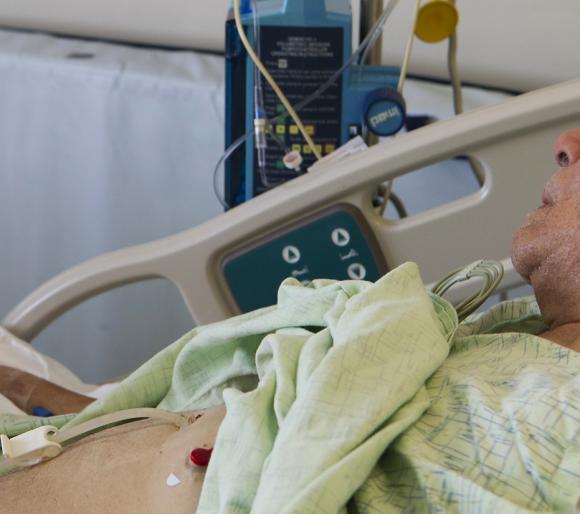PROVIDENCE, R.I. [Brown University] — When a nursing home patient is dying, aggressive interventions such as inserting a feeding tube or sending the patient to the emergency room can futilely exacerbate, rather than relieve, their distress. Palliative care focuses nursing home resources on providing comfort at the end of life, but nursing directors vary widely in their knowledge of it. A new large national study found that the more nursing directors knew about palliative care, the lower the likelihood that their patients would experience aggressive end-of-life care.
Susan C. Miller, professor (research) of health services, policy and practice in the Brown University School of Public Health and lead author of the study in the Journal of Palliative Medicine, worked with colleagues to survey nursing directors at more than 1,900 nursing homes around the country between July 2009 and June 2010 to assess their knowledge of palliative care and their facility’s implementation of key palliative care practices. The study is the first nationally representative sample of palliative care familiarity at nursing homes.
More than one in five of the surveyed directors had little or no basic palliative care knowledge (i.e., a score of 1 or 0 on a 0-to-3 scale), although 43 percent were fully versed. The average score was 2.2. Facility palliative care practice scores ranged from 12 to 36, with an average of 28.1.
“While the Institute of Medicine has called for greater access to skilled palliative care across settings, the fact that one in five U.S. nursing home directors of nursing had very limited palliative care knowledge demonstrates the magnitude of the challenge in many nursing homes,” Miller said. “Improvement is needed as are efforts to facilitate this improvement, including increased Medicare/Medicaid surveyor oversight of nursing home palliative care and quality indicators reflecting provision of high-quality palliative care.”
In addition to quizzing the directors, the researchers also analyzed Medicare data on the 58,876 residents who died during the period to ascertain the treatments they experienced when they were dying.
When the researchers analyzed palliative care knowledge together with treatment at end of life, they found that the more directors knew about basic palliative care, the lower likelihood that nursing home patients would experience feeding tube insertion, injections, restraints, suctioning, and emergency room or other hospital trips. Meanwhile, patients in higher-knowledge homes also had a higher likelihood of having a documented six-month prognosis. Most of these associations were highly statistically significant, but a few were marginally significant even after adjusting for a variety of factors including a nursing home’s extent of hospice use.
The study shows only an association between palliative care knowledge and less aggressive end-of-life care, the authors note. It could be that the knowledge leads to improved care, but it could also be that at nursing homes with better care in general, there is also greater knowledge.
But if there is a causal relationship, then it could benefit thousands of nursing home residents every year for their nursing home caregivers to learn more about palliative care, the authors conclude.
“The need for improving nursing home staff palliative care knowledge and practice is generally agreed upon, and the efficacy of such improvement is supported by our study findings,” the authors wrote.
In addition to Miller, the paper’s other authors are Julie Lima, also of Brown, and Sarah Thompson of the University of Colorado School of Nursing.
The National Institute on Aging funded the research (grant: P01AG027296).

